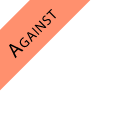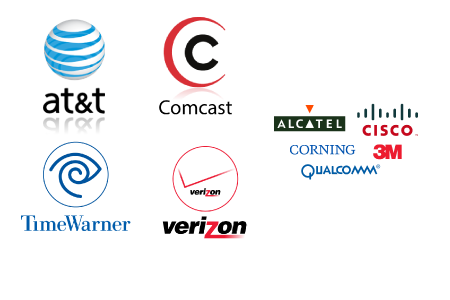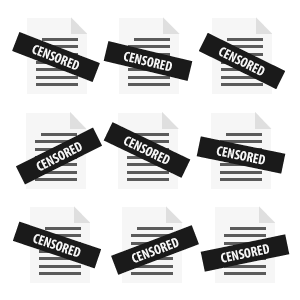
Scroll Down
Net Neutrality
Decoded





The Open Internet
We expect the Internet to be open and unbounded. It’s been that way since the beginning, after all. When we connect to the Net, we can visit any website we want. We don’t have to pay to access different sites, as we do with television channels. Net Neutrality, the fundamental principle of the Web, has given us equal access all these years. Why would we want to change that?
America's Internet
Before tackling the Net Neutrality debate, the first important thing to understand is that Americans are paying more money for slower Internet connections. The United States ranks 32nd in global download speed (the standard indicator for overall Internet speed) falling behind Singapore, Israel, and Romania.
To make matters worse, our subpar speeds are overpriced. A basic phone, TV, and Internet bundle that costs $99 per month in San Francisco or $70 in New York will only run you $35 in Paris or $15 in Seoul.
Sources:
Ookla Net Index |
BBC News
Average Download Speeds, Measured in Megabytes per Second (Mbps)
Internet/TV/Phone Bundle Price Rates




$99/mo. San Francisco
$70/mo. New York City
$35/mo. Paris
$15/mo. Seoul
What is Net Neutrality?
Net Neutrality is the concept that internet service providers (ISPs) should treat all internet traffic equally and without bias. This means that providers shouldn’t be able to slow down or speed up anyone’s internet connection for any reason. Net Neutrality also ensures that everyone on the web has the right to free speech.
Opponents of net neutrality are attempting to make their case for what is being called “tiered service.”
Image credit: Steve Roads | Creative Commons license
What is Tiered Service?
Fast Lane

Slow Lane

If Net Neutrality goes away, ISPs would be able to create two pathways to the internet—a fast lane for companies who can afford it, and a slow lane for everyone else. The fast lanes fall under a category called “paid prioritization”, which means that their connection to the internet would get preferential treatment during times of high traffic.
Sound fair?
Companies such as Netflix and YouTube would be strong-armed into paying ISPs more money for access to the fast lanes to deliver their content to customers in the manner it was meant to be viewed. This could mean that service rates for consumers will rise in order to pay the ISPs whatever they charge for faster speeds.
The Players Involved
The Net Neutrality debate pits ISPs like Comcast against large Internet brands like Google. Many in favor of Net Neutrality believe the U.S. Federal Communications Commission, or FCC, should regulate the actions of ISPs, preventing them from two-tier systems. Some fear such government regulation would only make matter worse.

U.S. Federal Communications Commission


Internet Service Providers (ISPs)
Network Equipment Companies


Internet-Based Companies
Internet Pioneers:
Vinton Cerf
Tim Berners-Lee
Lawrence Lessig
Craig Newmark
The Net without Neutrality

Small websites would struggle to maintain their services, since visitors would experience lengthy load times and partially rendered content. This applies to video data especially. Netflix and Hulu Plus subscribers would have no problem streaming their favorite shows. However, imagine, as a college student, being faced with constant delays while trying to stream videos for a class website that cannot afford life in the fast lane.

Although larger Internet companies would be able to buy into the fast lane, smaller online businesses would be left in the dust, their services slow and sluggish during peak times of traffic. The Internet has been so revolutionary because it offered an equal playing field to everyone. Without Net Neutrality, smaller websites have no chance of competing with existing giants, as the financial hurdle would be too great.

Losing Net Neutrality would therefore negatively affect both small businesses and everyday Web users. Free speech is also at stake, since ISPs would have the power to block content that they don't approve of. In fact, broadband providers have already done so on several occassions a few of which are listed here at ACLU. Seeing that ISPs already comprise huge conglomerates, there is no sense in affording them any more power.
What You Can Do to Help
The FCC is currently taking public comments regarding the issue of net neutrality. If you don’t like what you’ve just read,
make your voice heard!
Write a comment on the FCC government website sometime between now and July 27th.